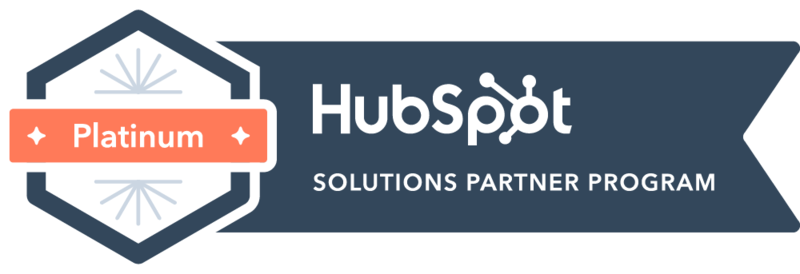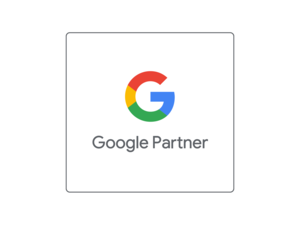Earlier this year, Google introduced significant changes to its search engine, incorporating generative AI. The update has the potential to transform how users interact with search results. It aims to make the search process smoother by providing instant summaries, better contextual follow-ups and reducing the need for users to wade through pages of information.
But what does this mean for B2B marketers who rely on search visibility and click-throughs to generate leads? Should you change your SEO or keyword strategies? How can you stand out now if the user doesn’t even need to scroll down the page?
In this blog, we explore how these updates will affect marketing strategies and what changes you need to make.
How has AI changed Google search?
At the heart of Google’s updates is its use of generative AI to help users get faster, more relevant information right at the top of the page. Traditionally, searching involved breaking down complex queries into smaller questions, sorting through search results and piecing together the answers. Now, Google’s Gemini is stepping in to do the heavy lifting.
With the introduction of AI-powered snapshots, Google provides users with key information – or the straight-up answer – at a glance, directly on the search results page. These summaries can also be enhanced and enriched with suggestions for follow-up questions and give users the option to delve deeper into specific topics. It all adds up to a more conversational flow, allowing users to keep exploring without ever leaving the search page.
As an example of how this is changing user experience, yesterday evening I searched “How should you dress a baby in the winter?” – Google’s AI instantly provided a snapshot of six tips and a short explanation for each. The power of AI meant the answers were really helpful, clearly correct and, crucially, meant that I didn’t need to scroll through results or open multiple tabs to find them. Super convenient for me. But maybe not so great for the baby clothing firm which had written the blog “7 winter care tips for newborns” – a link I no longer needed to click on having already gotten my answer from Gemini.
This shift marks a big change for marketers who have long depended on users clicking through to their websites from search results. So how should B2B marketers adapt?
AI search: Changing the game for B2B marketers
For B2B marketers, the impact of these AI search updates is twofold. On the one hand, Google’s enhanced AI could potentially reduce website traffic, as users might get the answers they need directly on the search engine results page without ever clicking through. The changes haven’t been active for long enough yet for us to have any solid data on it – but it’s safe to assume there is at least a chance this will cause fewer impressions and conversions from organic search.
On the other hand, these changes do create new opportunities. If Google’s AI starts pulling from high-quality, authoritative sources for its snapshots, then being the go-to source of reliable information becomes even more valuable. The key is ensuring your brand and content are part of that authoritative pool, offering the insights that AI uses in its summaries (and it’s worth nothing, the AI results do link to the source – so even though the information is already in front of the reader, if it’s been pulled from your site the user will have the opportunity to click through).
The SEO question: does it still matter?
A lot of B2B marketers are probably wondering: if people can get answers straight from AI-generated summaries, does that make SEO less important? The short answer is no – SEO is still critical, but it’s changing and evolving. The AI summaries are drawn from the content Google already indexes, meaning search engine optimisation still plays a role in making sure your website and content rank highly and are seen as authoritative.
But it must be said, the focus of SEO is likely to shift. It will no longer be enough to optimise for traditional ranking factors like keyword density and meta tags. Instead, content must be more engaging, in-depth and trustworthy to stand a chance of being featured in Google’s AI-generated summaries. As we’ve seen on other platforms, knowledge and expertise really are key to getting noticed here.
In fact, keyword optimisation is becoming more about understanding user intent and less about chasing high-volume phrases. AI is trained to prioritise the intent behind a query, so B2B marketers will need to think beyond keywords and focus on answering specific questions and providing real value.
So, what does this mean for B2B SEO?
Content quality matters more than ever: AI isn’t going to pick any old piece of content to feature in its summaries. It will prioritise well-researched, authoritative and comprehensive content. It should be in-depth, useful and trustworthy. At Pod, we’d never liked the creeping trend of short, keyword-stuffed blog posts.
Intent-focused SEO: As AI becomes more intuitive, optimising for search intent will be critical. Your content should aim to answer specific questions in a concise and helpful way.
New opportunities in ads: Paid search and display ads will still play a role in reaching your audience, appearing at critical touchpoints in the user journey.
Stay relevant in conversations: Google’s AI results also allow for “follow up” queries and deeper dives into topics. Make sure your content provides answers not just to the initial question but also to related questions a user might ask.
What are experts saying?
A recent article for MarketingWeek by Andrew Holland, an SEO specialist, titled AI search is going to change marketing… are you prepared?. The author notes users may no longer need to even go to traditional search engines in the first place for some of their queries. We agree. As generative AI improves, users will be less inclined to explore page two – or to be honest, page one – of search results. Instead, they’ll interact with a few carefully curated pieces of content which have been pushed by AI.
The article also argues this reduced visibility of search results makes brand awareness more important than ever. Building a recognisable and trusted brand will be critical in ensuring AI selects your content to appear in those first snippets of search information.
But, while it’s clear brand awareness is more important than ever, we believe there’s still a place for strategies that can capitalise on AI-driven intent signals. Marketers will need to get creative with PPC (pay-per-click) placements and paid social ads to remain relevant in an increasingly AI-curated landscape.
Pod’s Digital Marketing Lead, Raven Wheatley-Hawkins, added: “We still need SEO more than ever, but PPC is also now more valuable to take up the real estate on a page. Although this does mean that the cost of PPC is being driven up. SEO still needs to be great as organic search is the foundation of PPC working well. Local SEO is vital for real estate too.”
Embrace the change
As we’ve said before about AI – whether we like it or not, the way we do things is changing. Google’s new AI search capabilities are reshaping how users engage with content.
For B2B marketers, that means evolving our strategies, focusing on building authoritative brands and delivering high-quality, user intent-driven content. As AI search tools continue to develop – and we already know how quickly this is likely to happen – SEO will shift but won’t lose its relevance. Those who adapt now and embrace the new opportunities will come out on top.
If you need to update your SEO and digital B2B marketing strategy, contact our experts today.






 William Tomaney
William Tomaney
 Alexander Costello
Alexander Costello
 Jessica Keynes
Jessica Keynes
 Raven Wheatley-Hawkins
Raven Wheatley-Hawkins






.png)


